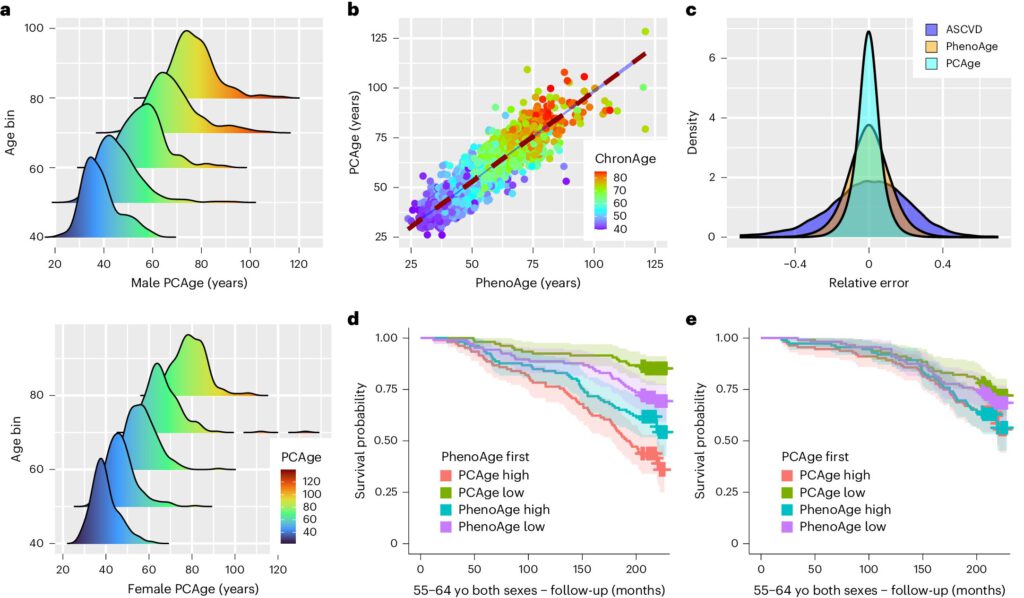Testing the robustness and accuracy of PCAge. a, Ridgeline plots of male and female populations stratified by decade of CA. b, Scatterplots and linear regressions of PhenoAge and PCAge for males and females. c, Effect of random errors in clinical parameters on BA clock and disease scores. d, Kaplan–Meier survival curves over 20 years of follow-up for subjects with PhenoAge 55–64 years, stratified by PCAge or PhenoAge. e, Same as d, but showing Kaplan–Meier survival curves for subjects with PCAge 55–64 years. Credit: Nature Aging (2024). DOI: 10.1038/s43587-024-00646-8
A joint team of longevity experts, gerontologists and biochemists from Singapore General Hospital, the National University of Singapore and Yale University Singapore has found that people who take the right steps to promote longevity can live longer if they follow certain guidelines.
For the study, published in the journal Nature Ageing, the team analysed age-related data from multiple sources.
Over the past few years, medical researchers have come to believe that humans have both a chronological age and a biological age. The former is determined by years and is the same for everyone. The latter depends on many factors, most of which are based on genetics, environment, and lifestyle choices.
For many years, the medical community has assumed that choosing to make lifestyle changes — for example, eating healthy foods, exercising, and avoiding risky activities — could help extend your lifespan. In this new study, researchers wanted concrete evidence that this assumption was true.
The researchers analyzed a training dataset from the National Health and Nutrition Examination Survey, which included medical information for 1,476 men and 1,536 women aged 40 to 84.
The researchers recorded the outcomes of people who received treatment for diseases or conditions known to affect lifespan, such as heart or kidney problems or conditions that cause chronic inflammation, and compared them with people who did not receive treatment. The researchers found a close correlation between the two benchmarks of aging, but also noted some significant residual differences.
The researchers then compared what they call the streamlined aging clock to what they call the clinical aging clock and found that they performed similarly when it came to measuring a person’s expected lifespan, and that both were better at predicting longevity than the chronological age clock.
The team then looked at data from the CALERIE study, which looked at the effects of dietary restriction on lifespan, and found that just two years of dietary restriction significantly reduced biological age.
Further information: Sheng Fong et al., “Principal component-based clinical aging clock identifies hallmarks of healthy aging and targets for clinical intervention.” Nature Aging (2024). DOI: 10.1038/s43587-024-00646-8
© 2024 Science X Network
Citation: Data analysis shows adopting therapeutic changes could extend lifespan (June 21, 2024) Retrieved July 29, 2024 from https://medicalxpress.com/news/2024-06-analysis-therapeutic-longer-lifespan.html
This document is subject to copyright. It may not be reproduced without written permission, except for fair dealing for the purposes of personal study or research. The content is provided for informational purposes only.

